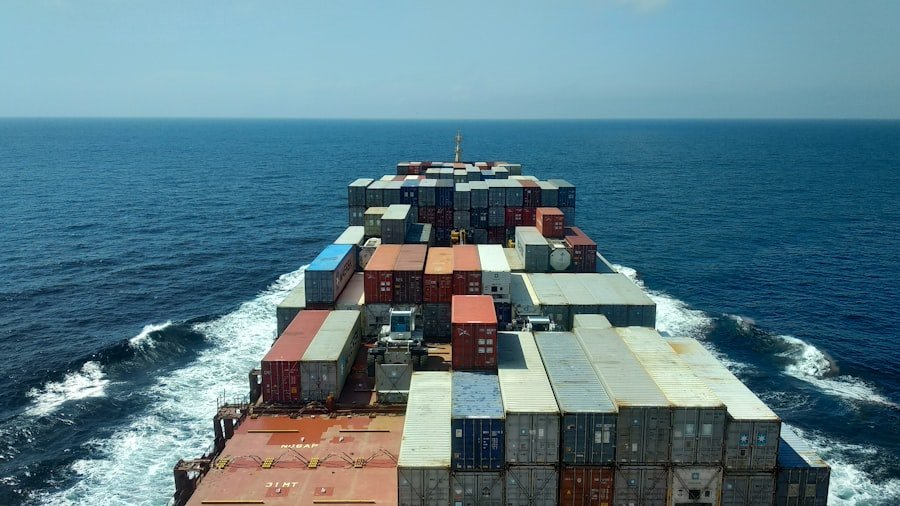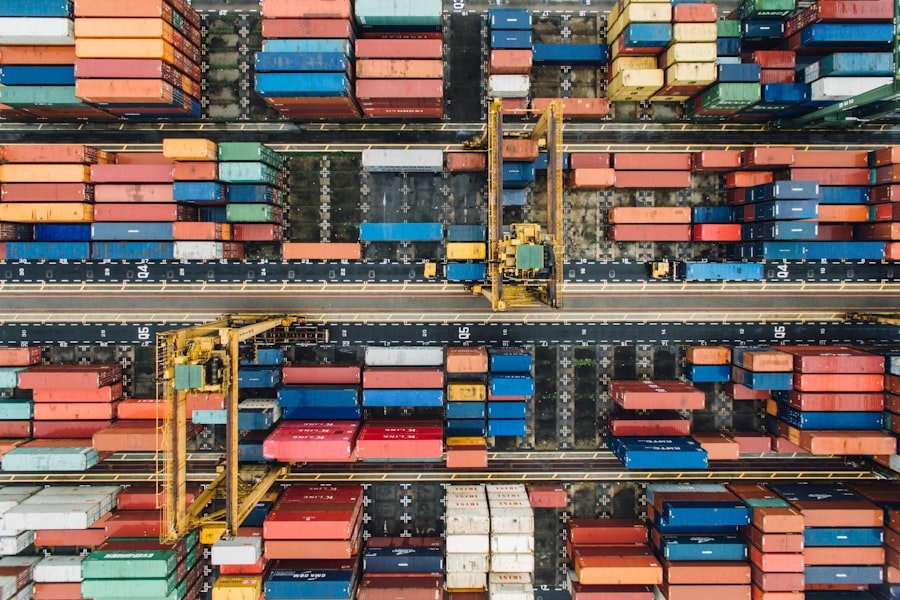Export control compliance refers to the adherence to laws and regulations governing the export of goods, services, and technology from one country to another. These regulations are designed to protect national security interests, prevent the proliferation of weapons, and ensure that sensitive technologies do not fall into the hands of adversaries. The complexity of export control compliance arises from the need to navigate a myriad of international treaties, national laws, and industry-specific regulations.
Companies engaged in international trade must be acutely aware of these requirements to avoid legal repercussions and maintain their reputations. The landscape of export control compliance is continually evolving, influenced by geopolitical shifts, technological advancements, and changes in government policy. For instance, the rise of dual-use technologies—items that can be used for both civilian and military applications—has necessitated stricter controls and more comprehensive compliance measures.
Businesses must not only understand the specific regulations that apply to their products but also stay informed about changes in legislation that could impact their operations. This requires a proactive approach to compliance, including regular training for employees and the implementation of robust internal controls.
Summary
- Export control compliance is essential for businesses to ensure they are following regulations and laws when trading internationally.
- Understanding the importance of export control compliance is crucial for businesses to avoid legal and financial repercussions.
- Export control regulations and laws vary by country and it is important for businesses to stay informed and up to date with these regulations.
- Key elements of export control compliance include screening, classification, licensing, and record-keeping to ensure all exports are legal and compliant.
- Challenges in export control compliance include navigating complex regulations, managing global supply chains, and staying updated on changing laws and regulations.
The Importance of Export Control Compliance
The significance of export control compliance cannot be overstated, as it plays a crucial role in safeguarding national security and promoting international stability. By ensuring that sensitive technologies and materials are not exported to hostile nations or terrorist organisations, countries can mitigate risks associated with arms proliferation and cyber threats. For businesses, compliance is not merely a legal obligation; it is also a critical component of corporate responsibility.
Companies that prioritise export control compliance demonstrate their commitment to ethical practices and contribute to global security efforts. Moreover, non-compliance can have severe financial implications for businesses. Penalties for violations can include hefty fines, loss of export privileges, and even criminal charges against individuals involved in the transgressions.
Beyond the immediate financial repercussions, companies may also suffer reputational damage that can hinder their ability to secure contracts or partnerships in the future. In an increasingly interconnected world, where supply chains span multiple countries, maintaining a strong compliance posture is essential for sustaining competitive advantage and fostering trust among stakeholders.
Export Control Regulations and Laws

Export control regulations vary significantly from one jurisdiction to another, reflecting each country’s unique security concerns and foreign policy objectives. In the United Kingdom, for example, the Export Control Act 2002 governs the export of military and dual-use goods, while the Export Control Order 2008 provides detailed lists of controlled items. The UK also adheres to international agreements such as the Wassenaar Arrangement, which aims to promote transparency and responsibility in transfers of conventional arms and dual-use goods.
In the United States, the regulatory framework is primarily governed by the Export Administration Regulations (EAR) and the International Traffic in Arms Regulations (ITAR). The EAR covers a broad range of commercial goods and technologies, while ITAR specifically addresses defence-related items. Compliance with these regulations requires businesses to classify their products accurately, determine licensing requirements, and implement appropriate safeguards to prevent unauthorized exports.
The complexity of these regulations often necessitates specialised legal counsel or compliance experts to navigate effectively.
Key Elements of Export Control Compliance
A comprehensive export control compliance programme typically encompasses several key elements designed to ensure adherence to applicable laws and regulations. First and foremost is the establishment of clear policies and procedures that outline the company’s commitment to compliance. This includes defining roles and responsibilities within the organisation, as well as creating protocols for identifying controlled items and determining licensing requirements.
Training and education are also critical components of an effective compliance programme. Employees at all levels must be aware of export control regulations relevant to their roles and understand the potential consequences of non-compliance. Regular training sessions can help reinforce this knowledge and ensure that staff remain vigilant in identifying potential compliance issues.
Additionally, companies should implement robust record-keeping practices to document compliance efforts, including licensing applications, export transactions, and internal audits.
Challenges in Export Control Compliance
Despite the importance of export control compliance, businesses often face significant challenges in implementing effective programmes. One major hurdle is the complexity of regulations themselves; with numerous laws governing exports across different jurisdictions, companies may struggle to keep abreast of their obligations. This complexity is further compounded by the rapid pace of technological change, which can render existing regulations outdated or insufficient.
Another challenge lies in the global nature of supply chains. Many companies rely on international partners for manufacturing or distribution, which can complicate compliance efforts. For instance, if a company exports a product that contains components sourced from multiple countries, it must ensure that all aspects of the supply chain comply with relevant export control laws.
This requires diligent oversight and collaboration with suppliers to verify their compliance status and ensure that controlled items are not inadvertently exported without proper authorisation.
Consequences of Non-Compliance

The repercussions of non-compliance with export control regulations can be severe and far-reaching. Financial penalties are often the most immediate consequence; regulatory agencies may impose fines that can reach millions of pounds depending on the severity of the violation. In some cases, companies may also face civil lawsuits from affected parties or even criminal charges against executives or employees involved in non-compliant activities.
Beyond financial penalties, non-compliance can lead to significant operational disruptions. Regulatory agencies may suspend or revoke a company’s export privileges, effectively halting its ability to conduct international trade until compliance issues are resolved. This can result in lost revenue and damage to customer relationships, particularly if clients rely on timely deliveries of controlled goods or services.
Furthermore, the reputational damage associated with non-compliance can have long-lasting effects on a company’s standing in the marketplace, making it more challenging to attract new customers or secure partnerships.
Best Practices for Export Control Compliance
To navigate the complexities of export control compliance effectively, businesses should adopt a series of best practices tailored to their specific operations and regulatory environment. One fundamental practice is conducting regular risk assessments to identify potential vulnerabilities within the organisation’s export processes. This involves evaluating existing policies and procedures, as well as assessing employee awareness of compliance obligations.
Another critical best practice is fostering a culture of compliance throughout the organisation. Leadership should actively promote the importance of export control compliance by providing resources for training and encouraging open communication about potential issues. Establishing a dedicated compliance team can also enhance oversight and ensure that compliance efforts are prioritised across all departments.
Additionally, leveraging technology can significantly improve compliance efforts. Many companies are turning to software solutions designed specifically for export control management, which can streamline processes such as classification, licensing applications, and record-keeping. These tools can help automate routine tasks, reduce human error, and provide real-time visibility into compliance status across the organisation.
The Role of Technology in Export Control Compliance
Technology plays an increasingly vital role in enhancing export control compliance efforts across various industries. Advanced software solutions enable businesses to automate many aspects of their compliance programmes, from tracking controlled items to managing licensing applications. These systems often include features such as automated alerts for regulatory changes or reminders for renewal deadlines, ensuring that companies remain informed about their obligations.
Moreover, data analytics tools can provide valuable insights into export patterns and potential risks within supply chains. By analysing historical data on exports and identifying trends or anomalies, companies can proactively address potential compliance issues before they escalate into violations. This data-driven approach not only enhances compliance but also supports strategic decision-making by providing a clearer understanding of market dynamics.
In addition to software solutions, emerging technologies such as blockchain are being explored for their potential applications in export control compliance. Blockchain’s inherent transparency and immutability could facilitate more secure tracking of controlled items throughout the supply chain, providing verifiable records that demonstrate compliance with export regulations. As technology continues to evolve, businesses must remain agile in adopting innovative solutions that enhance their compliance capabilities while navigating an increasingly complex regulatory landscape.
Export control compliance is essential for businesses to ensure they are following the necessary regulations when trading internationally. In a related article on anti-competition laws, it discusses the importance of businesses adhering to laws that promote fair competition in the UK market. Just like export control compliance, anti-competition laws play a crucial role in maintaining a level playing field for businesses and protecting consumers. Both aspects are vital for businesses to operate ethically and sustainably in the global marketplace.
FAQs
What is export control compliance?
Export control compliance refers to the adherence to regulations and laws that govern the export of goods, technology, and information from one country to another. These regulations are in place to ensure that sensitive items do not fall into the wrong hands and are used for illegal or harmful purposes.
Why is export control compliance important?
Export control compliance is important for national security, as it helps prevent the proliferation of weapons of mass destruction, terrorism, and other threats. It also protects sensitive technologies and intellectual property from being misused or stolen.
What are some examples of items that are subject to export control regulations?
Items that are subject to export control regulations include military equipment, dual-use technologies (items that have both civilian and military applications), certain chemicals and biological agents, and certain types of software and technology.
What are the consequences of non-compliance with export control regulations?
Non-compliance with export control regulations can result in severe penalties, including fines, imprisonment, and the loss of export privileges. It can also damage a company’s reputation and lead to loss of business opportunities.
How can companies ensure export control compliance?
Companies can ensure export control compliance by implementing robust compliance programs, conducting regular training for employees, screening customers and partners, and staying up to date with changes in export control regulations. It is also important to maintain accurate records and documentation of all export activities.
